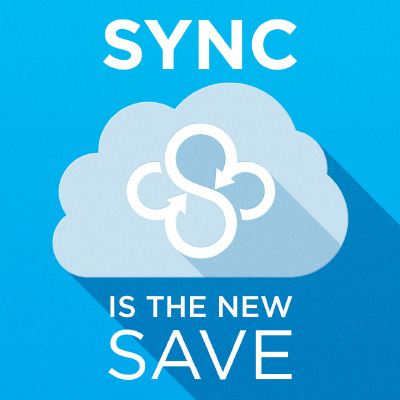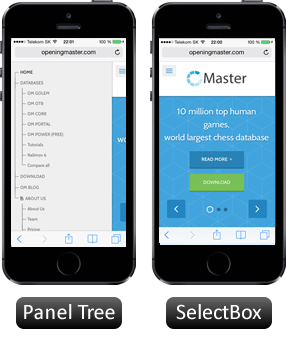Which are the parameters of any chess database:
a/ magnitude in terms of how many games or positions
b/ format of the saved data
c/ content value of the DATABASE!!
d/ speed of searching, physical storage based on the selection criteria
e/ possibility of duplicate games / or with same development of the game but with different players
f/ update to some fixed date
g/ minimal level criteria for entrance to the database (number of moves, presence of computer games, Internet portals, ELO of players, ‘blitz’ games etc…)
h/ number of annotated games
You may thus obtain various databases. Many times they are of commercial base with various volumes / years or editions. Their disadvantage: the interested parties buy them and then they compete with same data for analyzing of openings and games themselves. They are quite expensive and their actualization once a year is obviously not adequate considering the need to follow up the news of the chess masters.
There is also so called self-learning with help of database programs. It is a range of openings, strategy, tactics and end-games. Essentially one must say, we should not confuse ‘database programs’ with ‘data games’ i.e. chess databases about which we are talking about.
The usage of CHESS DATABASE:
At first, we need to say that many chess players mismatch database program with Database as a collection of data. The database program such as ChessBase (CB), ChessAssistant (CA), Exachess, SCID is an instrument which runs under the operating system and manipulates with chess data. We are not introducing freeware such as ‘Jose’ and others due to their strong difference in performance against other commercial database programs. There are also other commercial programs like Chess Academy which did not get any larger spread. It still happens these days that despite the ‘enlightenment’ there are people who ask within the ‘database’ (chess data only) also commercial database program which uses this data. They have not noticed the difference, nor would they believe that both these things can be sold separately!
One must say in regards to database programs, there is a book manual of ChessBase translated to many languages. There is however quite an advantage for CA and Bookup as they both have downloadable videos in English on the Internet about using of the programs.
What exactly does chess player expect from database program?
At first, he is waiting for an answer where to move in the opening. The purpose of the lectures is absolutely not to confirm whatever there is in that database one needs to oblige. It is purely an analysis of a position from all possible views, e.g:
a/ the number of appearance replies for one move.
b/ when and by whom it was played, and games alone with possibility to re-play.
c/ if database contains commentaries, then opinion of the annotator on key moments of the game
d/ the possibility of watching next sequel and statistics of individual moves of the sequel.
e/ Each database program contains also chess programs (i.e. engines) which know in the right moment to perform the ‘reference analyses’ of the positions.
In this, but also in other analyses, man and machine can be very good partners, but only if you know the weak parts of the engines such as:
- valuation of closed pawn structures
- diagnosis of the possibility of next never-ending check, eventually 3x repeat of the same position
- inept change of figures right before moving into the end-game
- end-game continuation itself and the rule of 50 moves, meaningless chasing of the king in some end-games, not recognizing obvious draw
- closed positions of the middle game
- inability to correctly valuate some openings
- Orthodox understanding that rock is more then bishop or knight.
- bad valuation of positions where there is obvious non-balanced material
- willingness to move h6 also in dangerous positions, underestimation of sacrifice
- intuition for attack moment
- not every best move is the best
- ability of strategic maneuver before end-game
- not understanding that many times threat is more then execution
The engines plays simply strict, based on the rules and they behave like that. Every year there are new engines which gradually remove the above mentioned defects. Many times the quality and power of the engine depends on if the engine programmer is also a good chess player. If there is such a combination once in a while we call it ‘fishie’ (or baby fish). The analysis of individual engine problematic, its setup of the parameters and tournaments would require a separate web site.
Same for the outputs from DATABASE programs, they can be deceitful from reason:
- a database statistics does not take into consideration the game style of players and their strength. It expresses as average. In addition, if the move is ‘brand new’, many times there is no statistical attachment of importance. There is also computer generated news, which was not examined yet.
- mistakes of the commentaries in annotations
- ability to recognize transposition opening (Bookup 2000 is good here because it does not save games but positions)
It is also necessary to trust but to check. With the interactive work human-machine, it is possible to reach the desired goal. The difference is also in analysis of the ended game vs. continuous. With continuous game, the engine is actually a counterpart which virtually replaced the opponent. Here the static analysis does no longer suffice because engines do not see behind the horizon. The interactive analysis is needed which CA allows. Eventually, the tournament set-up of engines against each other might help (e.g. 7 engines play 2 round games from the examined position – ‘round robin’)
Everything is of course time consuming and dependent on the hardware which you have at home. The speed of processor (one core or two or even more) – the performance of whole number arithmetic, the RAM memory - for hash table engines, hard disk drive (HDD) - for Nalimov’s end-games and DATABASE itself.
What do ICCF titled correspondence masters advise?
Create your own database of ended games. Analyze and comment for yourself with retroactive analysis. Create your own repository for white and black for several openings. In addition, if you are preparing yourself for some contest where an opponent already played more games which are in the database, it is possible to prepare by searching his games and examining his style and habits. All concrete techniques are in the manuals. Here the question remains: the de-duplicate of the database by creator of database. If you de-duplicate absolutely, then only one body of the game remains anytime – of course the best possible game.
The creators of Opening Master Database have thus a moral issue at which quality level it is offered to the public. Many times consumer databases compete who has more quantity and don't look back on quality. Lately, commercial databases add to their data youth contents of many times disputable quality. Also the ‘blitz’ contests do not add value to chess theory much. (the Blitz games is a distinctive style of chess, valuable mainly for practical chess players playing on-line for the sake of adrenalin and reflex practice)
Conclusion:
From the above we can conclude that chess DATABASE program and also ‘chess database’ is for life-time learning but can be also for actual usage in contests - be it practical or correspondence. In various discussion forums on different chess portals there have been a long term debate whether it is for amateurs, beginners or only for CS players. The answer could have been clarified:
a/ for people who do not have issues with information technology (IT) it is no problem at all. They comprehend what programs require from them and they adapt. However, first they must learn to play chess ;-). DATABASE program and Database can help them on the way.
b/ for the rest of the ‘old’ chess players it is a question of survival against younger opponents who don't have a problem with IT nor with understanding of the chess database position. There is effective guide to it which one should understand – how will you improve today to be better tomorrow. One of the answer is statistics. We wish our brains could remember 10 million games which had been played before and analyse it in a fraction of the second, until then we must use the DATABASES to do this job for us.


